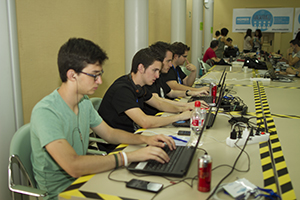The HOMER (Harmonising Open Data in the Mediterranean through Better Access and Reuse of Public Sector Information) project demonstrates that open data can be shared across borders. Nineteen partners across eight countries worked together to share publicly held data and make it available to citizens and businesses.
- 01 December 2015
HOMER has been able to open several thousand public datasets enhancing digital transparency across the Mediterranean. The datasets increase the economic development by the creation of tools and applications which contribute to improving the quality of life of citizens, as well as strengthening the ability of the population to contribute to the definition of, and participation in, public affairs. The lessons learned from the governance and harmonisation points of view can be a good reference for other cooperation initiatives at European regional level.
The project’s main achievement was to create an open, multi-lingual web portal to share information. So far, this portal shares 4 650 datasets on a wide range of topics from agriculture to tourism. This was a major challenge and involved overcoming cultural, linguistic, legal and technical barriers. The project wasn’t just about creating a portal, it was also about making sure that people knew about it and could benefit from the available information. This was achieved through two pilot actions. One action focused on citizens and the other focused on creating economically valuable apps and services.
The first action involved establishing citizen participation workshops to find ways to improve the quality of life in the local areas by making use of the available data. The people who were involved were not IT experts and came up with specific local problems that could make use of data in finding solutions. The workshops showed how the available datasets could help make local authority services more efficient and citizen-focused.
Hackathons
The second pilot action aimed to raise awareness of the available data to both citizens and businesses. This was done by organising ‘hackathons’ which bring computer programmers, graphic designers and project managers together to work intensively to develop software applications. Initially, six national hackathons were organised. Before the events universities, IT high schools and SMEs worked together to collect ideas and think of possible ways to use the available data. Finally, a transnational hackathon, Hack4Med was organised. The event resulted in the creation of 36 web services and mobile apps. The winning team won a trip to Manchester to attend the ‘Future of Everything Festival’ and was able to pitch their work to a panel of start-up funding specialists.
Sharing and spreading lessons
Making data available and exploitable is one of the key objectives of the EU’s Digital Agenda. The project is an excellent example of how public sector actors can share information across borders. Those involved in the project have ensured the sustainability of their project by establishing action plans and protocols on sharing more information. They also developed a manifesto and guidance documents that can be used by other organisations who want to identify obstacles and solutions for the creation of this pan-European open data portal. The project is also open to new participants who wish to share their data in the future.
Total investment and EU funding
Total investment for the project “Homer: Med OpenData” was EUR 3 666 437, of which the EU’s European Regional Development Fund is contributing EUR 2 813 712 from the Operational Programme “Interreg Mediterranean Programme” for the 2007 to 2013 programming period.

